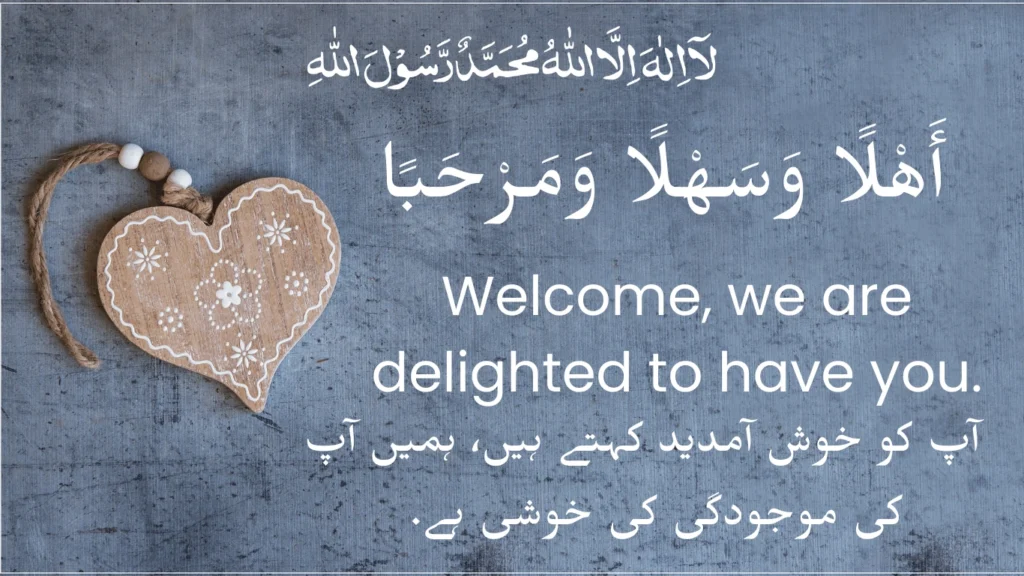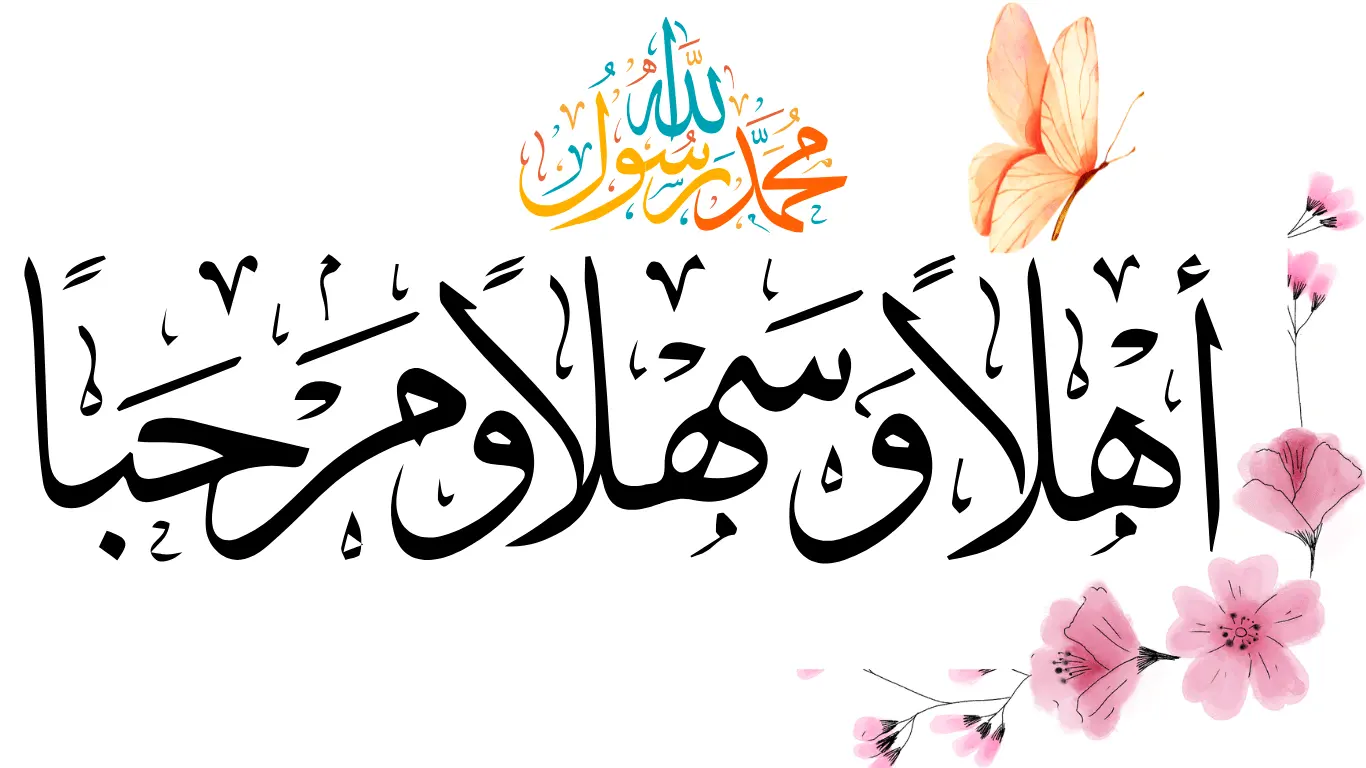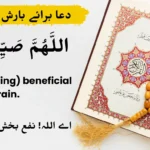In the rich tradition of Arabic-speaking cultures, the phrases Ahlan wa Sahlan and Marhaba symbolize warmth, hospitality, and respect. These expressions are often used to greet someone with affection, creating a welcoming atmosphere. This article explores the meanings, cultural significance, and translations of these phrases, complete with Arabic verses and their Urdu and English translations.
| Dua e Eid- Taqaballahu Wa Minkum |
| Surah Ghafir (40:44) Wa Ufawwidu Amri ilallah |
| Innallaha Wa Malaikatahu Yusholluna Alan Nabi |
| Iman e Mufassal & Mujmal- Guide to Faith in Islam |
Ahlan wa Sahlan: Meaning and Significance
Arabic: أَهْلًا وَسَهْلًا
- Literal Translation: “Family and ease”
- Common Meaning: “Welcome”
The phrase “Ahlan wa Sahlan” stems from classical Arabic and carries profound meaning. “Ahlan” means “family,” signifying that the guest is as dear as family. “Sahlan” implies “ease,” wishing the guest a comfortable and smooth experience. Together, the phrase reflects the essence of hospitality in Arabic culture.
Cultural Context
It is commonly used in both formal and informal settings to greet guests, whether in homes, gatherings, or even in professional environments.
Example in Arabic, English, and Urdu
Arabic Verse:
أَهْلًا وَسَهْلًا بِكُمْ فِي دَارِنَا
English Translation:
“Welcome to our home.”
Urdu Translation:
“ہمارے گھر میں آپ کو خوش آمدید کہتے ہیں۔”
Marhaba: A Friendly Greeting
Arabic: مَرْحَبًا
- Literal Translation: “A place of wide space”
- Common Meaning: “Hello” or “Welcome”
Derived from the root word “Rahb,” meaning “spaciousness,” “Marhaba” expresses openness and friendliness. This word conveys a heartfelt invitation, assuring the guest of a warm and accommodating environment.
Cultural Context
“Marhaba” is frequently used as a standalone greeting or alongside “Ahlan wa Sahlan,” emphasizing a warm welcome. It can also be used in casual conversations to say “hello” or “welcome back.”
Example in Arabic, English, and Urdu
Arabic Verse:
مَرْحَبًا بِكَ فِي جَمَاعَتِنَا
English Translation:
“Welcome to our gathering.”
Urdu Translation:
“ہماری محفل میں آپ کو خوش آمدید کہتے ہیں۔”
Ahlan wa Sahlan Marhaba Together
These phrases are often combined to provide an even more powerful expression of hospitality. For example:
Arabic Phrase:
أَهْلًا وَسَهْلًا وَمَرْحَبًا
English Translation:
“Welcome, we are delighted to have you.”
Urdu Translation:
“آپ کو خوش آمدید کہتے ہیں، ہمیں آپ کی موجودگی کی خوشی ہے۔”

Unveiling the Richness of Arabic Greetings
- Hello and Welcome: Widely used English counterparts of “Ahlan wa Sahlan Marhaba.”
- Hala wa Marhaba (هَلَا وَمَرْحَبًا): A more casual greeting.
- Hayak Allah (حَيَّاكَ اللّٰه): A spiritual greeting meaning “May Allah preserve you.”
These phrases enrich communication, offering varied ways to extend warmth and hospitality.
Why These Greetings Matter
In Arabic culture, greetings signify respect, love, and the value of interpersonal relationships. Using these phrases reflects an understanding of cultural etiquette and promotes meaningful interactions.
FAQs
Ahlan wa Sahlan” means “Welcome,” symbolizing that the guest is as dear as family and should feel at ease.
Marhaba” is a friendly greeting used to say “Hello” or “Welcome,” often reflecting openness and warmth.
Yes, combining these phrases strengthens the welcoming tone, making it even more heartfelt and hospitable.
Conclusion
The expressions “Ahlan wa Sahlan” and “Marhaba” are more than just words; they encapsulate the essence of Arabic hospitality. Whether you’re greeting someone in person, sending a message, or starting a speech, these phrases build bridges of kindness and respect. Let’s embrace the beauty of these words to foster meaningful connections in our lives.





Hi to all, the contents present at this website are in fact awesome for people experience,
well, keep up the good work fellows.